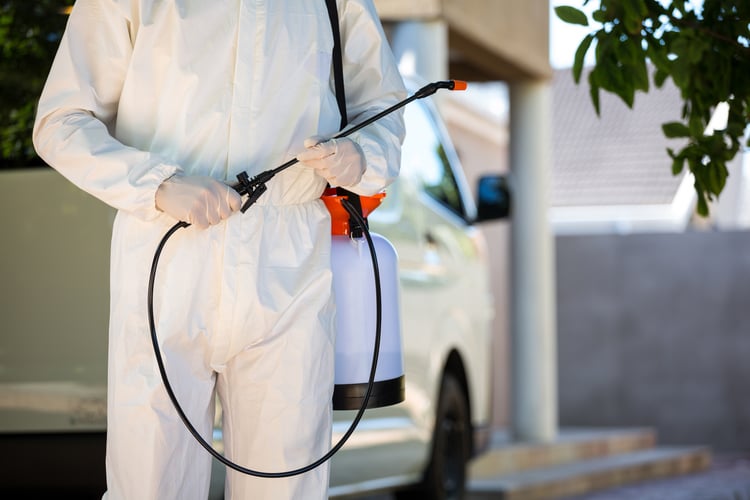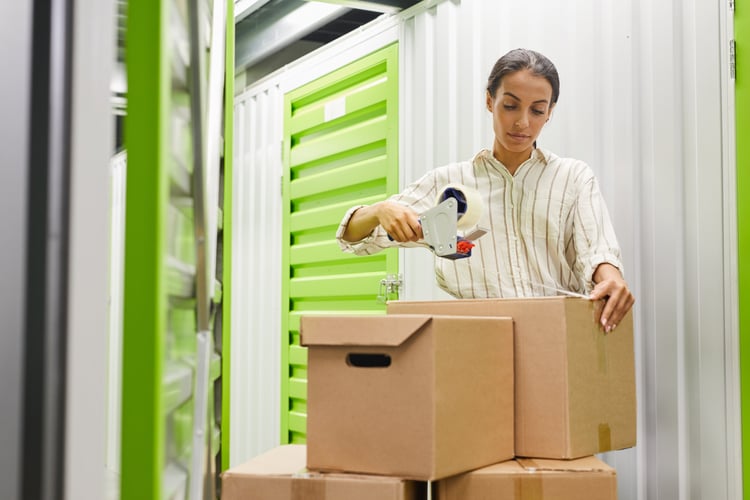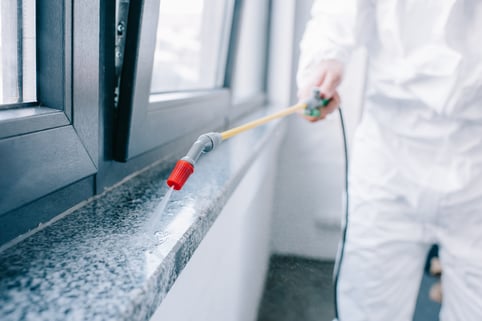When you're managing a self storage facility, the last thing you want to worry about is stumbling upon an unwelcome critter, like a rodent or a cockroach scurrying about. Unfortunately, storage units aren't immune from pest infestations.
Storage unit pest control is an important part of maintaining a safe facility. Pest infestations and rodent damage is not only a frequent tenant protection or insurance claim, but it is the source of many one star reviews - both of which are costly to your self storage business.
There are several things you can do to keep bugs and rodents from taking up residence in your facility's storage units beyond asking renters to keep clean storage units. When it comes to preventing pests, it’s all hands on deck.

Tips to Keep Rodents & Pest Out of Your Self Storage Facility
Common pest control problems can include rodents, cockroaches, ants, and other insects. To keep these pests out of your facility, take proactive steps for pest control. Here are some ways you can get started.
Use Pest Control Services
One of the most effective ways to keep pests out of your facility is by contracting a reputable pest control service. Pest control companies can provide regular inspections and treatments to help identify, prevent, and eliminate infestations.
They can also advise on best practices for ongoing prevention and encourage regular maintenance activities such as cleaning, vacuuming, and disposing of food waste (and remember, if you want to keep a unit pest-free, your renters should not store food inside).
Offer Plastic Containers to Sell to Renters

Renters should store their items in airtight plastic containers to keep pests away from their belongings. Encourage renters to purchase plastic containers that are designed specifically for self storage purposes at your facility.
Offering these products will help protect the renter’s stored property, as well as reduce the chances of pests infesting the storage unit. After all, plastic is chew-proof for rodents, but cardboard boxes are not.
Keep Your Facility Clean (And Encourage Renters Do The Same)
Cleaning is an important part of pest control in a self storage facility. Regularly inspect the area around your self-storage facility for signs of rodent activity. Look for rodent droppings, tracks, burrows, and other signs of possible pest and rodent infestations.
You should regularly vacuum the floors and clean walls to remove any food or debris that could attract pests at your self storage facilities. Ensure that leaks are repaired and the property is kept dry to discourage pests from taking up residence in your facility. Encourage renters to keep their units clean and sanitized, and provide guidelines on how they can do so effectively.
Educate Renters on Storage Unit Cleanliness
Renters should be aware of best practices when it comes to ways to deter pests from their self storage units. Educate renters on proper self storage techniques and natural pest deterrents like cedar blocks in bowls or lavender oil or peppermint oil on cotton balls. These essential oils can sometimes repel pests.

Your self storage contract should explicitly prohibit storing any food or perishable items in a unit. That way, if repeated violations of this lease provision occur, you can terminate the lease and require the tenant to move out.
Make sure your contract includes limit of liability language to protect you from damage to stored items. And use Storelocal Protection to offer tenants protection against damage or loss to their stored items. Note that damage from pests or rodents is limited to $500, regardless of the coverage amount a tenant purchases.
However, you can let renters know that a plastic mattress cover or plastic bags can go a long way in helping protect their items, including visiting their storage unit regularly to keep it clean.
Your self storage contract should explicitly prohibit storing any food or perishable items in a unit. That way, if repeated violations of this lease provision occur, you can terminate the lease and require the tenant to move out.
Make sure your contract includes limit if liability language to protect you from damage to stored items. And use Storelocal Protection (hyperlinked) to offer tenants protection against damage or loss to their stored items. Note that damage from pest or rodents is limited to $500, regardless of the coverage amount a tenant purchases.
You should also educate renters about the signs of a potential infestation so they can take immediate action to prevent further damage or the spread of the infestation. The last thing anyone wants is to attract unwanted pests by accident.
Who’s Responsible: Self Storage Renters or Facility Operators?
It is important for both self storage facility operators and renters to be aware of their responsibilities when it comes to pest control. Generally, the owner or operator is responsible for ensuring that the facility is maintained in a clean and safe condition. Renters should take steps such as storing items properly, being aware of signs of infestation, and notifying management if they notice any potential issues with pests. Working together is key to keeping your facility pest-free.
Typically, self storage facilities are not held liable for rodents or other pests. Double-check your contracts for liability exclusions. For example: if a customer has a rat infestation that results in damaged upholstered furniture, the liability won’t fall on the facility owner. However, as a facility owner, you should still strive to keep your entire property clean to help prevent a pest infestation.

Join Our Community of Storage Facility Owners
By taking proactive steps to control pests, you can help ensure that pests and rodents don't take up residence in your facility's storage units. Be sure to contact a professional pest control service for regular inspections and treatments, offer plastic containers for sale, keep the property clean, and educate renters on storage unit cleanliness for the best results.
At Storelocal, we've gathered the best of the business together to form a membership community of self storage facility owners. Struggling with a pest problem? Fellow members would be more than happy to help share some remedies to help you prevent pest damage and to make your storage facilities pest-proof.
